
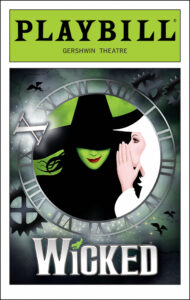
By Steve Vertlieb: Wicked, the musical, debuted at The Gershwin Theater on Broadway on October 30th, 2003. Based somewhat freely upon the 1995 novel, The Life and Times of The Wicked Witch of the West by Gregory Maguire, the musical became the fourth longest running Broadway show in history, selling tickets to eager theater goers for seventy-seven hundred performances over a period of twenty years. Produced by Universal Pictures’ Stage Division, directed by Joe Mantello, featuring music and lyrics by Stephen Schwartz, with “book” by Winnie Holzman, and starring Idina Menzel as Elphaba Thropp, and Kristin Chenowith as Galinda (later “Glinda”) Upland, the now beloved production was nominated for ten Tony Awards, winning three. Although initially panned by New York critics, the musical’s popularity grew quickly, while extending its wizardly tentacles with high quality touring casts and companies throughout the world.
Its legend, began, of course, with the publication of The Wonderful Wizard of Oz by writer L. Frank Baum in 1900, along with its succession of utterly acclaimed, and wonder filled sequels. While a series of remarkable silent film productions attempted to capture the wit, wonder, and philosophic eloquence of the original stories, it wasn’t until 1939 when Louis B. Mayer and Metro-Goldwyn- Mayer produced their classic technicolor release of The Wizard of Oz that the children’s fable achieved mythic status. Starring Judy Garland as “Dorothy Gale,” Ray Bolger as the “Scarecrow,” Jack Haley as the “Tin Man,” Bert Lahr as the “Cowardly Lion,” Margaret Hamilton as the “Wicked Witch,” Billie Burke as “Glinda, the Good Witch,” and Frank Morgan as “The Wizard of Oz,” MGM’S 1939 adaptation of the L. Frank Baum stories opened the magical gates of film posterity as, perhaps, the most universally beloved motion picture of all time.
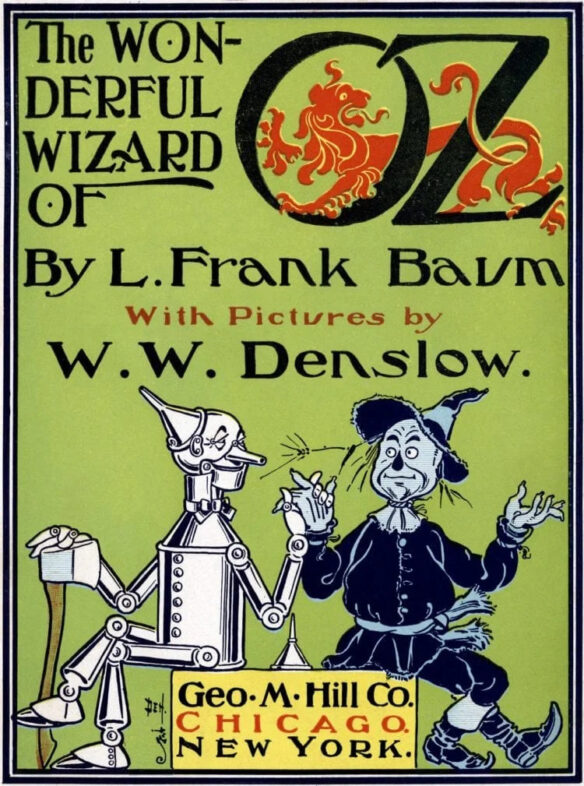


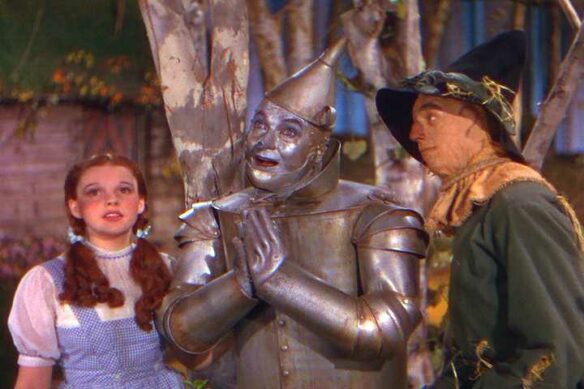

The stage re-imagining of the original stories and subsequent films created a vision of “Oz,” and its primary protagonists, prior to the arrival of Dorothy and her friends, concentrating instead on the initial introduction, and subsequent bittersweet relationships between Elphaba Thropp, emotionally scarred, yet proud, and Galinda Upland, lovely, popular, and oblivious to misfortune. The power and ultimate tragedy of their doomed friendship is essentially the story of Wicked, as well-intentioned innocence and vulnerability leads inevitably down the cobblestone-laden “yellow brick road” to betrayal and corruption. After all, “it’s not easy being green.”

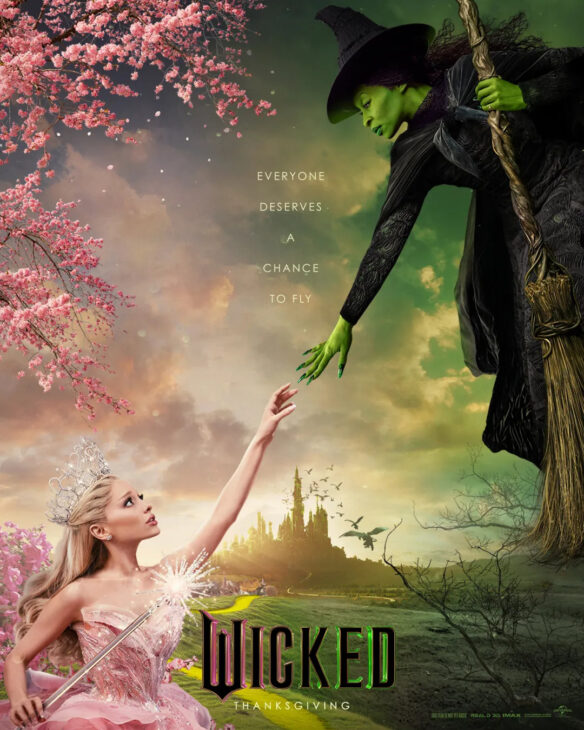
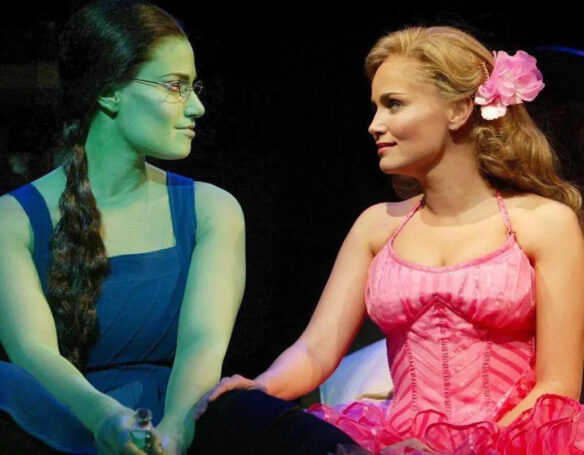

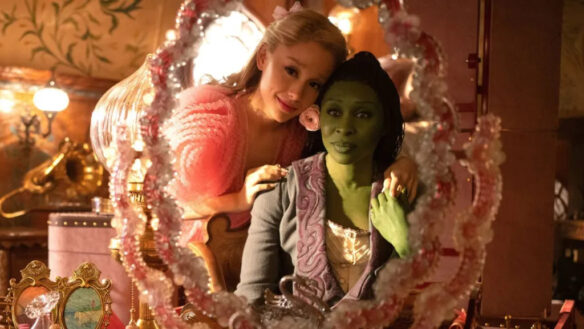

Universal’s utterly spectacular, visually stunning, near overwhelmingly cinematic film production, taking three years to reach the screen, is worth the wait. The production values and impeccable casting of this joyous holiday release reach unimaginable perfection. The expanded story line and enhanced plot development necessarily precipitated a screening length of nearly five hours, requiring a temporary division of the film into two separate entities, with Wicked part one premiering at Thanksgiving, 2024, and its continuation opening at Thanksgiving, 2025.
The intriguing, intentionally provocative casting of Cynthia Erivo as Elphaba Thropp lends an uncomfortable nuance and suggestion of racial profiling to the presentation, beyond the more traditional green coloring of her complexion. A wonderfully gifted dramatic actress, Erivo is given enormous latitude in expressing the utter loneliness and despair of bigotry and social expulsion with merely a haunted look in her eyes, a visual longing for simple acceptance by societal values and norms, and the resignation in understanding that she will always be looked upon as an outsider, lending a poignance to her performance never entirely realized in the original stage production.
Ariana Grande-Butera is a revelation as Elphaba’s spiritual “sister,” Galinda, a wide-eyed privileged innocent, unspoiled or corrupted by disapproval, and oblivious to tragedy. Her somehow subliminal glimpse of, or understanding of racial prejudice, leads her to bond with and befriend her “colored” rival, offering kindness and consideration to her strange roommate. Known purely as a “popular” singer until now, despite her obvious comic genius exhibited on NBC’S Saturday Night Live, Grande shines near operatically with hitherto unknown vocal power, sublime beauty and an astonishing range of vocal dexterity. Both Erivo and Grande wonderfully compliment each other’s performances with grace and subtlety of characterization.
The cast of Wicked is uniformly excellent and exceptional with star performances by veteran actress Michelle Yeoh as “Madame Morribe,” Jonathan Bailey as “Fiyero” (whose “prince has come”), Marissa Bode as “Nessarose,” herself an object of separation and bigotry, and Jeff Goldblum, ever wonder filled as “The Wonderful Wizard of Oz.”
A celebration of the film’s often remarkable set pieces, visual splendor, and sumptuous beauty include a truly wondrous futuristic train, a giant animatronic wizard’s head, and an affectionate, if hilarious, production number and homage to the original cast featuring cameo appearances by both Idina Menzel and Kristin Chenowith.
Written by Winnie Holzman, Dana Fox, and Gregory Maguire, with music by Stephen Schwartz and John Powell, cinematography by Alice Brooks, production design by Nathan Crowe, set decoration by Lee Sandales, spectacularly choregraphed by Christopher Scott, and directed with depth, sumptuous splendor and beauty by Jon M. Chu, Wicked, Part One is a joyous, magical, utterly spellbinding triumph of the spirit and, perhaps, the finest film musical in decades. Its release at this seasonal time of year is certainly cause for Thanksgiving. It’s a musical treat for the senses … born “somewhere over the rainbow.”

Discover more from File 770
Subscribe to get the latest posts sent to your email.

Baum’s Wicked Witch of the West isn’t described as green, so she lacks that excuse. She is an absolute tyrant over the Winkies, who were “made to work hard during many years for the Wicked Witch, who had always treated them with great cruelty.” I like alternate treatments of familiar stories, but Wicked will have a hard time persuading anyone who’s read the book to regard the WWW in a better light.